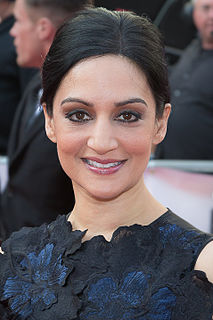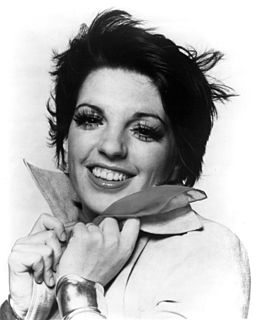A Quote by Albert Brooks
My mother was supportive without knowing it. Deep down she wanted all the right things, she just didn't see the world like I did, and she's not supposed to.
Related Quotes
She (Judy Garland) was a friend of mine, a trying friend, but a friend. That is what I tell myself: She did everything she ever wanted to do. She never really denied herself anything for me. See, I say, she had a wonderful life; she did what she wanted to do. And I have no right to change her fulfillment into my misery. I'm on my own broom now.
My mother wanted to be a mother. That's the only thing she wanted from the bottom of her heart. She didn't want to be the number one actress - which she was - and she didn't want to be this great legend. All she wanted to be was a mother and she did but God took her away. So I always will empathise and sympathise with women.
My mother was the first African-American policewoman in Seattle - recruited, actually - and she did it for only 2 years, as she did not want to carry a gun. She worked mostly on domestic disturbances. The NAACP wanted her to do it. She did not actually have the temperament to be a cop - she was very sweet. She had a Masters in social work.
He began to trace a pattern on the table with the nail of his thumb. "She kept saying she wanted to keep things exactly the way they were, and that she wished she could stop everything from changing. She got really nervous, like, talking about the future. She once told me that she could see herself now, and she could also see the kind of life she wanted to have - kids, husband, suburbs, you know - but she couldn't figure out how to get from point A to point B.
When we were arguing on my twenty-fourth birthday, she left the kitchen, came back with a pistol, and fired it at me five times from right across the table. But she missed. It wasn't my life she was after. It was more. She wanted to eat my heart and be lost in the desert with what she'd done, she wanted to fall on her knees and give birth from it, she wanted to hurt me as only a child can be hurt by its mother.
...fact was she knew more about them than she knew about herself, having never had the map to discover what she was like. Could she sing? (Was it nice to hear when she did?) Was she pretty? Was she a good friend? Could she have been a loving mother? A faithful wife? Have I got a sister and does she favor me? If my mother knew me would she like me? (140)
[Short Talk on Sylvia Plath] Did you see her mother on television? She said plain, burned things. She said I thought it an excellent poem but it hurt me. She did not say jungle fear. She did not say jungle hatred wild jungle weeping chop it back chop it. She said self-government she said end of the road. She did not say humming in the middle of the air what you came for chop.
People said things they didn't mean all the time. Everybody else in the world seemed able to factor it in. But not Lena. Why did she believe the things people said? Why did she cling to them so literally? Why did she think she knew people when she clearly didn't? Why did she imagine that the world didn't change, when it did? Maybe she didn't change. She believed what people said and she stayed the same." (Lena, 211)


































